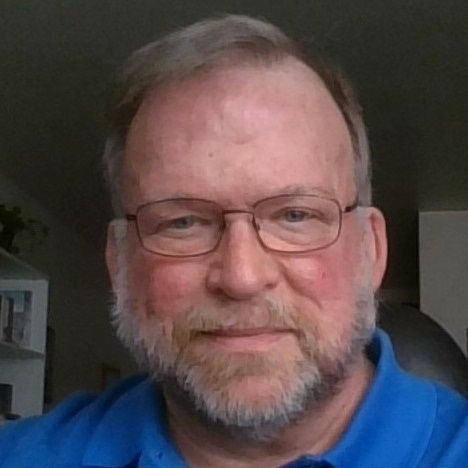Dan Keusal, M.S., LMFT
Jungian Psychotherapy for Individuals & Couples
"Find Your Purpose, Heal Your Pain, Live With Passion"
| Receive my email newsletter! |
Dan Keusal's e-newsletter
Autumn 2023 edition:
"You Can't Surprise A Machine"
To get my newsletters delivered directly to your email inbox, join my mailing list;
use the sign up box on this page,
or just send me an email asking to be added, and I'll add you myself.
To listen to an audio recording of this essay, read by the author,
click here.
Greetings...
The essay in this newsletter looks at how exploring the depths of the ocean might shed some light on exploring the depths of the psyche. I'm also introducing an experiment: I'm offering an audio recording of that essay, a "podcast" if you will, so you can not only read the essay, but hear it read in the author's own voice. Let me know what you think of this new feature.
As we enter more deeply into autumn, as leaves fall away and temperatures cool and the activities of summer quiet down, may you, too, welcome the falling away of things in your life whose time is now ending, and a cooling of some of your stresses and anxieties, and a quieting of outer activities that makes time for curling up into contemplation about where you are in the journey that is your life.
Take good care,
~Dan
* * * * *
Reflections: “You Can't Surprise A Machine"
The first explorer of the depths of the ocean may have something to teach us about exploring the depths of the psyche.
On January 23, 1960, two men—Don Walsh, an American naval lieutenant and submariner, and Jacques Picard, a Swiss oceanographic engineer—descended in the bathyscape Trieste to the bottom of the Pacific Ocean’s Mariana Trench, 35,800 feet below sea level, the first humans to reach these depths of the ocean.
Decades later, author Barry Lopez traveled to Walsh’s home in Oregon to talk with him about the experience:
It was important to Walsh that a human being, not a rover or a probe, first saw the bottom of the Pacific. “You can’t surprise a machine,” he said to me. And it is this capacity to appreciate the unknown, to be surprised by it, he believes, that will always set the human explorer apart from the machine. The moment of surprise informs you emphatically that the way you once imagined the world is not the way it is. “To explore,” he says, “is to travel without a hypothesis.”*
So many contemporary approaches to therapy are about trying to eliminate “surprise.” These approaches are driven not by opening up to the depths, the wonder, the mystery of the human experience (both its suffering and its joys), but by employing the “machine”-like assumptions of medical-model, evidence-based approaches to mental health, and by the corporatist, profit-oriented goals of the privatized insurance industry.
Such approaches focus on fitting that human experience into pre-determined boxes called “diagnoses,” and then setting up and adhering to “treatment plans.” In other words, they are about ‘traveling’ with a hypothesis, about assuming that the world is the way they have imagined it.
Potential clients often ask me about what a typical course of therapy will look like, about what they can expect. I tell them: I have no idea. That answer doesn’t provide the (false) comfort it would if I assured them “I’ll cure your problem in 10 sessions, using this step-by-step method,” but it is more respectful of the reality that no one can know how another individual’s journey will unfold.
Often, the most significant developments and the biggest benefits that emerge over the course of therapy are surprisingly different than the original problem or agenda that a client thought they were coming in to address. There are no predictable paths, let alone predictable outcomes, when we start talking about family, or when we listen to the promptings of the unconscious that emerge in dreams, or as we welcome stories of love, loss, work, creativity, spirituality.
One client might enter therapy looking for tips on communicating with their partner, only to discover over time that the malaise in their relationship, and in the rest of their life, stems from having chosen a career that pleased their parents rather than one that honored their own true calling, their vocation.
Another client might enter therapy seeking to address the obstacles they’ve encountered to greater accomplishment and advancement in their job, only to learn that they entered that line of work, with its promise of achievement and power and wealth, in an attempt to shield them from the vulnerabilities arising from their experiences of trauma or loss.
Yet another client might enter therapy seeking to unlock their creativity, only to find themselves wrestling with the ways they were shut down by the hypocrisy and even the abuse of the church of their formative years; from there, they may become gradually re-awakened and brought to life by nature, or poetry, or travel, or music, and in doing so find themselves arriving at new ways to ‘understand’—that is, to stand under the mystery—of the source of all creativity, and its power to animate their daily lives.
As Don Walsh said, “To explore is to travel without a hypothesis,” to be open to “surprise,” to discover that the way you once imagined the world is not the way it is.
To explore in these ways takes openness, courage, and often many years of persistence, but the rewards are usually deeper, longer-lasting, and more interesting.
*From Horizon, by Barry Lopez, p. 71.
Dan Keusal, M.S., LMFT, Psychotherapist. (206) 523-1340. Email: dankeusal@dankeusal.com
